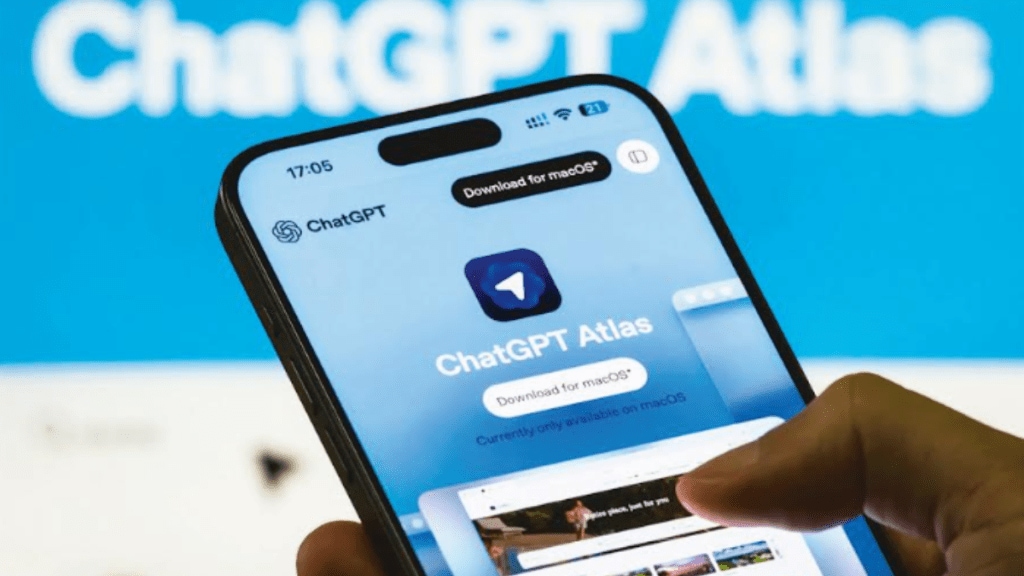OpenAI touts its AI-powered browser ChatGPT Atlas as a productivity breakthrough; but for digital marketers, it represents a challenge to decades-old assumptions about how brands are discovered, measured, and monetised online.
Atlas promises to summarise web pages, mimic user clicks, and act as an intelligent research assistant, all without users visiting the underlying websites. AI summarisation means brands will receive fewer website visits and less direct engagement. For an industry built on traffic, impressions, and attribution models, that shift could prove seismic. “Atlas breaks the old internet contract,” says Raghav Gupta, founder & CEO, Futurense. “What used to be a search-land-metric loop will now be a search-AI summary-trust loop.” In other words, organic discovery by the user is displaced by the source that is quoted by AI.
The implications are not exactly palatable. Chandan Sharma, general manager of digital media at Adani Group, says “it’s bad news” for marketers, though not immediately. His team started preparing for this shift last year, focusing on ensuring the brand appears in AI-generated summaries rather than relying solely on traditional traffic metrics.
Data suggests that erosion of organic web visits has already begun — between 15% and 64% when AI answers replace standard results, according to Sharma. On pages featuring AI summaries, users click on web addresses that are thrown up only about 8% of the time versus 15% during traditional searches.
Industry experts forecast further deterioration. Yasin Hamidani, director at Media Care Brand Solutions, expects a 15 to 25% dip in organic traffic for content-heavy websites over the next 12 to 18 months. Gagan Kapoor, a marketing consultant at Go4Growth Consulting, predicts a 20 to 30% decline, especially for informational queries. Gupta sees losses reaching 25 to 40% but views the shift as “compression” rather than catastrophe: fewer visits, but higher-quality engagement from users arriving deeper in the conversion funnel.
The challenge extends beyond vanishing traffic. Atlas’s ability to mimic human behaviour threatens to muddy analytics. “The browser can mimic human behaviour, causing confusion for marketers tracking ad clicks and visitor data,” Adani’s Sharma notes.
This forces a fundamental rethinking of search engine optimisation. “Traditional SEO, built around keywords and backlinks, will have limited value when Atlas reads, reasons, and summarises content before the user ever clicks,” says Ambika Sharma, founder of Pulp Strategy. Her company has developed what she calls NeuroRank, a tool designed to help brands understand how AI models interpret context and authority beyond conventional metadata.
Adapt and run
Marketers are scrambling to adapt. Roughly 10-15% of digital budgets for 2025-26 are being redirected toward AI-driven optimisation and automation tools, according to multiple executives interviewed. The shift involves creating “AI-readable” content that language models can easily parse and reference.
The loss of content control represents a real challenge. When AI summarises brand messaging, tone and nuance can evaporate. Your page might be summarised, rephrased, or even skipped. “Generic content will simply vanish in translation,” ” warns Ramya Ramachandran, founder of Whoppl.
To combat dilution, marketers are implementing what Gupta calls “semantic anchors”: short, verifiable summaries embedded across key pages that train AI systems on brand voice. “We spent years optimising for algorithms, then for humans, and now we’re optimising for hybrids,” Gupta explains. Manas Chhabra, founder of Flash Communications, adds that brands must now create content for two audiences simultaneously: humans and machines.
Sharma anticipates measurable impressions will decline gradually but significantly, while weaker cookie and tracker visibility makes retargeting increasingly difficult. The industry may need to shift from buying impressions to buying context, securing placement within AI-generated answers rather than alongside them.
